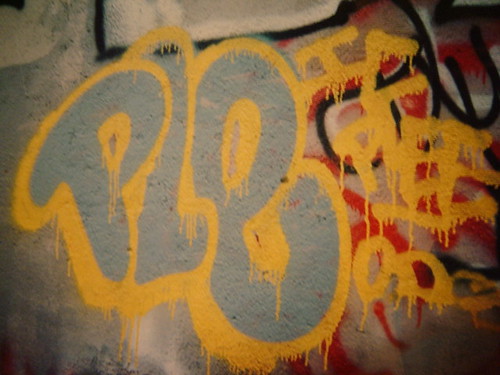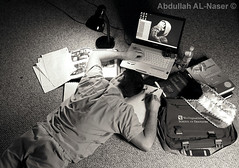 photo by graf_bobo
photo by graf_boboBesides being time to start thinking about our final thesis, it’s time for us to sum up our long and
personal journey across English language learning, as well. I think the process of studying a new language may be seen more or less like a long trip within yourself, your skills, your abilities and knowledge. You start from a point where you don’t know almost anything and, step by step, you reach what’s supposed to be the best you can do. As during a journey, there can be pauses, accelerations, obstacles to pass and goals to achieve.
This time we were asked to produce our
Personal Learning Environment (PLE), obviously about our English learning process. I can describe the PLE as a sort of outline where we can put whatever we think can be helpful in order to learn a foreign language throughout our life, not only concerning the time we spent learning it at school. Above all in this scheme we have to write what we really use and do to approach and make ours what we learn. They can be tools, resources, processes, persons, situations, experiences, activities and they depend on your personal possibilities and needs. A PLE is something more than personal! It’s not an easy job, because we all know the learning process takes place in various situations: formal and informal, national and international, institutional and daily. Anyway, let’s try!
It’s true when we say
we won’t ever stop learning. We learn from everyday situations, from mistakes, from dangerous or bad experiences, but even from memorable events and unforgettable friendships and relations. It’s interesting to notice how more you can learn outside of institutional contexts, such as school and university. There’s a huge world outside where you have the opportunity to share your opinions, to learn from the others, to listen to what they have to say, to practice what you already know, to keep your mind flexible and to reflect about what you’ve done so far and what you could do to improve it.
The easiest way to organize my PLE was to divide it into two big areas: the
formal and the
informal one. Then I made four different subdivisions for each areas:
activities,
people,
sources of information and
tools. As you can see (can you see, really?!!?) from the picture I posted there are various ways to learn a foreign language and above all everybody can do it! It’s not easy being original about this topic, because we are used to learn more or less all in the same way. Anyway, within the formal area I want to emphasize the great contribution mother tongue teachers, grammar manuals, peers’ discussions and oral activities give us. Whereas within the informal area I want to underline how fundamental experiences abroad are (this is my case! Last year I couldn’t a word of Spanish, and now I can speak about everything and with everybody!), besides listening to foreign music, watching movies in their original version, reading and chatting in virtual communities.
To produce my own PLE gave me the possibility to reflect on the learning tools I used till now and to take a look inside what I’ve done in order to see if I achieved the goals every student set when he/she began studying English. At the beginning I couldn’t find where to start writing, probably because there was too much to say. As a matter of fact while I was writing this post I noticed the more I was thinking, the more came to my mind and I wanted to add. It’s really impressive how many ways exist to learn, gather and store new pieces of information.
Since learning time never ends, I’m sure I will have many other things to add to my outline!


